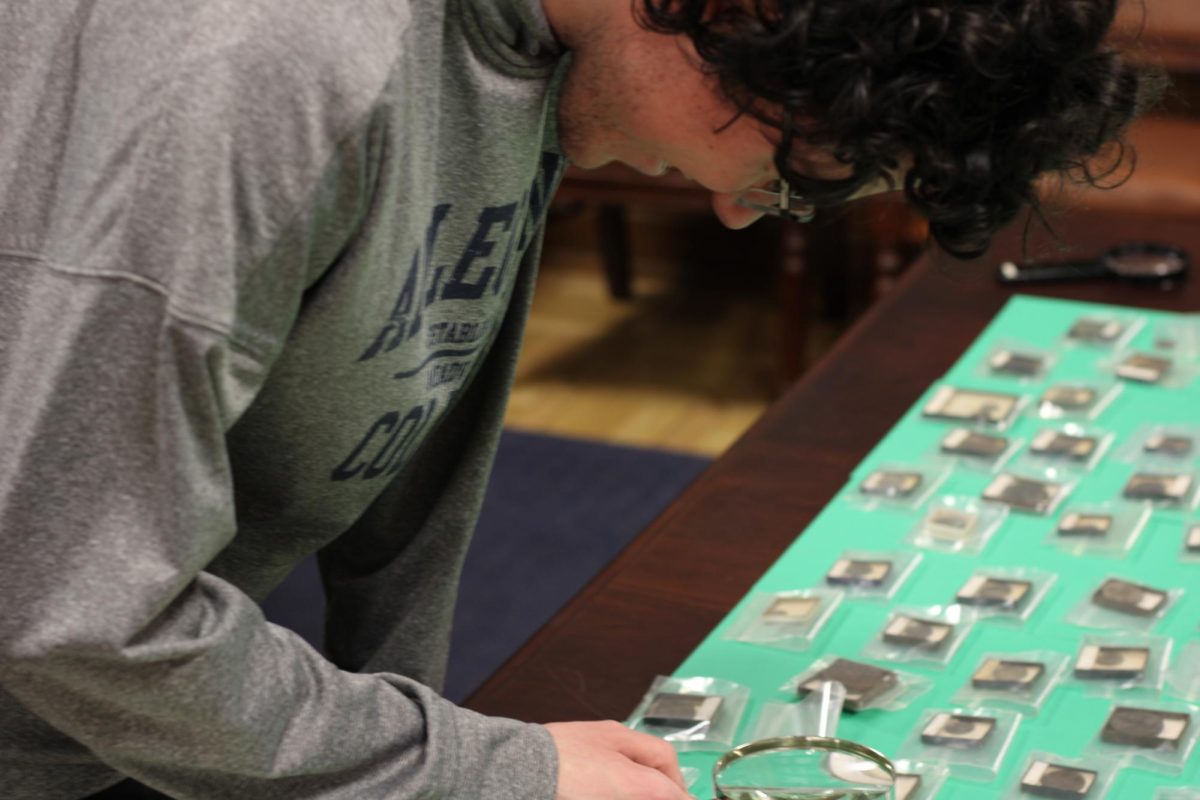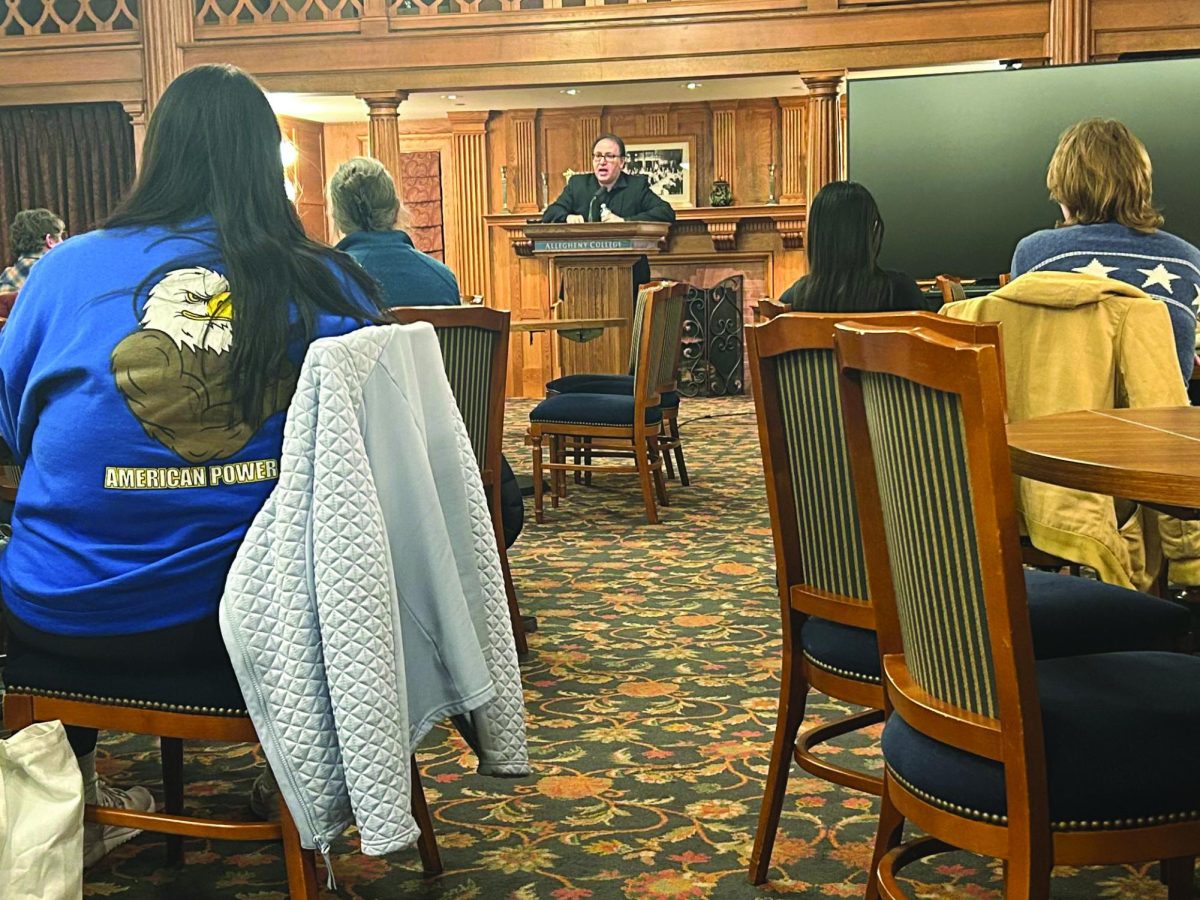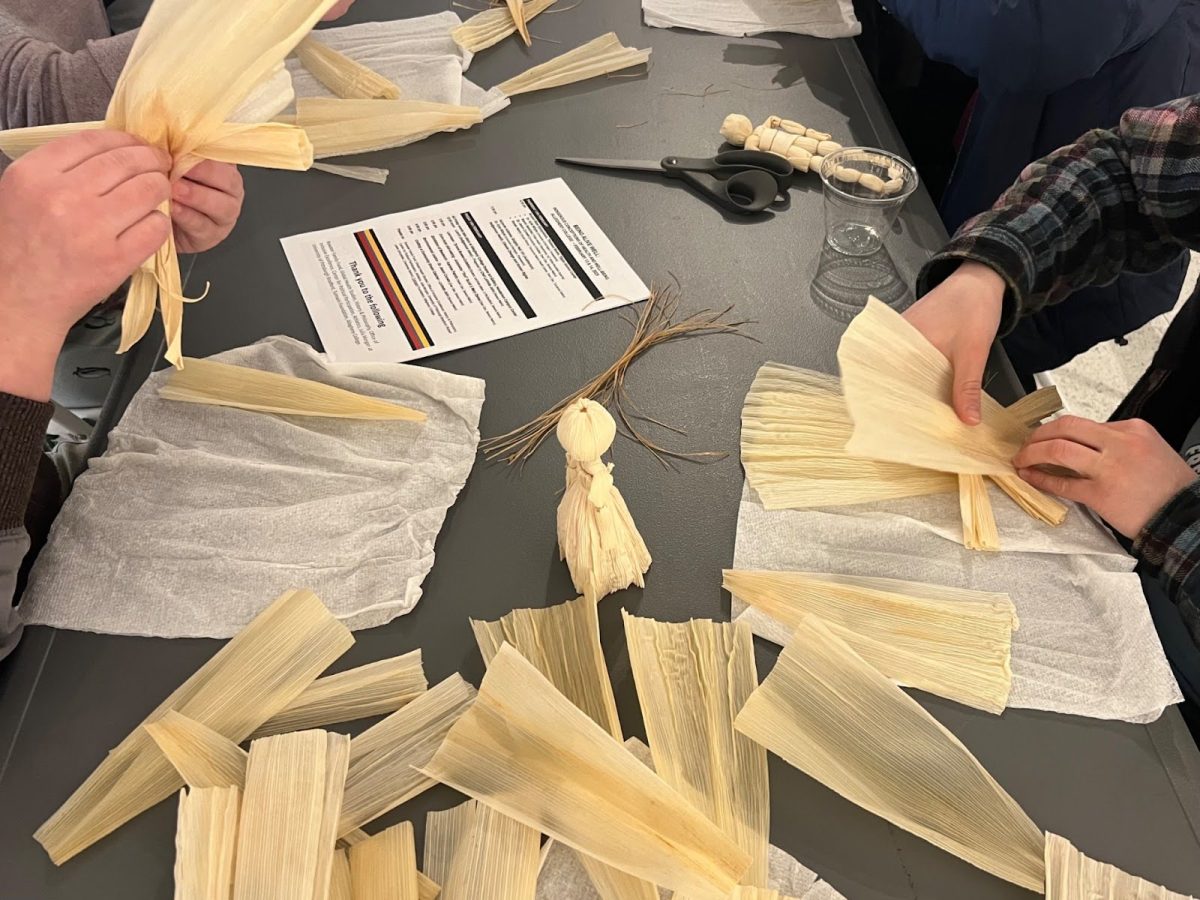Despite the fact that he does not speak English, Salgado Maranhão, the second guest speaker in this year’s Single Voice Reading Series, communicated his poetry to an audience in the Tillotson room of Tippie Alumni Center this Wednesday. His long time translator and traveling companion, Alexis Levintin, translated Maranhão’s words from his native Portuguese into English.
“Venho dos corregos de agua salobra,” said Maranhão.
“I come from the gullies of brackish water,” translated Levintin to the audience. Allegheny students and faculty gathered together to hear poetry read in two different languages.
This poem, which Maranhão was delivering from memory, was the first of many in his collection entitled The Blood of the Son to be recited that night.
Maranhão and Levintin met in 2007 through a professor at Brown University and have been working together ever since. The dynamic between the two is fluid and comfortable: when Maranhão speaks in Portuguese, Levintin translates into English on the fly. Levintin knows about Maranhão’s past, where he came from and the experiences that encouraged him to become a poet.
And as it turns out, Maranhão came from more than the gullies of brackish water.
Levintin said Maranhão grew up in the remote backcountry of Brazil, in a community without teachers, doctors or schools. He worked as a sharecropper with his family on the farm his father owned, from the time when he was eight until he was 14.
Maranhão’s mother, an illiterate farm worker, had a relationship with his married father. Despite complex family relations, Levintin explained that Maranhão was shown love throughout his childhood, from his parents as well as the wife of his father. The experiences he had growing up helped to shape him into the poet he is today.
“My poetry is quite idiosyncratic and it has even grammatical distortions that are a reflection somehow of my [mixed] background,” Maranhão said, translated by Levintin.
In addition to grammar and content, Maranhão’s poetry has something else—music. Maranhão encourages the crowd, even those who do not understand a word of Portuguese, to listen to the way his poems sound as he recites them, Levintin said.
“There is no interference of knowledge. There’s no interference of content. You’re listening to pure music,” Levintin translated.
Levintin said translating poetry from the difficult syntax of Portuguese and maintaining its musical finesse in English can often be difficult.
“I was lucky to find a translator so competent and obstinate as Alexis [Levintin] to accompany me word by word in the struggle to convert this difficult language,” Maranhão said.
Maranhão and Levintin exchange glances at the word “obstinate,” chuckle and kid in this way throughout the entire night.
Levintin said this compatibility is essential to the translation process, as the two must understand each other.
“Translating is like weaving a tapestry in a different kind of wool. The Portuguese wool may be alpaca and mine may just be sheep’s wool. But we try to create a equivalent weave of sound so it is well knit,” Levintin said.
He said the result is a real living poem. This result is the reason why the pair has been traveling to share work with colleges and universities across the country.
Professor Christopher Bakken, chair of the English department, organizes the Single Voice Reading Series and brought the pair to Allegheny. Bakken met Alexis Levintin at the American Literary Translators Association conference, and crossed paths with him by coincidence last year at the Associated Writers and Writing Programs conference in Chicago.
“[Levintin] said ‘Well, I’m going to be traveling around the country with this Brazilian poet I translate for—how about I stop in Pennsylvania?’” Bakken said.
“I just know that anything Alexis touches is going to be really high quality,” he said.
Bakken said he was thrilled for the opportunity to bring someone like Maranhão to campus.
Allegheny students were thrilled to have him. Cale Davis, a junior English major with an emphasis in creative writing, attended the event for his advanced poetry workshop.
“I thought the reading was incredible,” Davis said. “I feel very lucky to have seen it. It is a rare experience, to hear a poet read from a completely foreign language and tradition.”
He said in addition to his poetry, Maranhão brought energy and happiness to Tippie.
“He had a great smile, and after the reading he gave everyone hugs. I really bought the book just to get a hug,” Davis said.
Levintin and Maranhão were pleased by the atmosphere at Allegheny, noting in particular the camaraderie between faculty members and students.
Levintin also said the two enjoyed the fall foliage of Meadville.
“You have a wonderful campus. It’s a wonderful day, the trees are changing colors as a way no tree in Brazil ever changes,” Levitin translated for Maranhão.
When asked if we might see a poem about Meadville in the future, Maranhão grinned and Levintin responded, “We have traveled 4,500 miles already and this is the most beautiful campus we have visited.”
“It is as if the trees have been painted to receive us,” Levitin translated for Maranhão.






